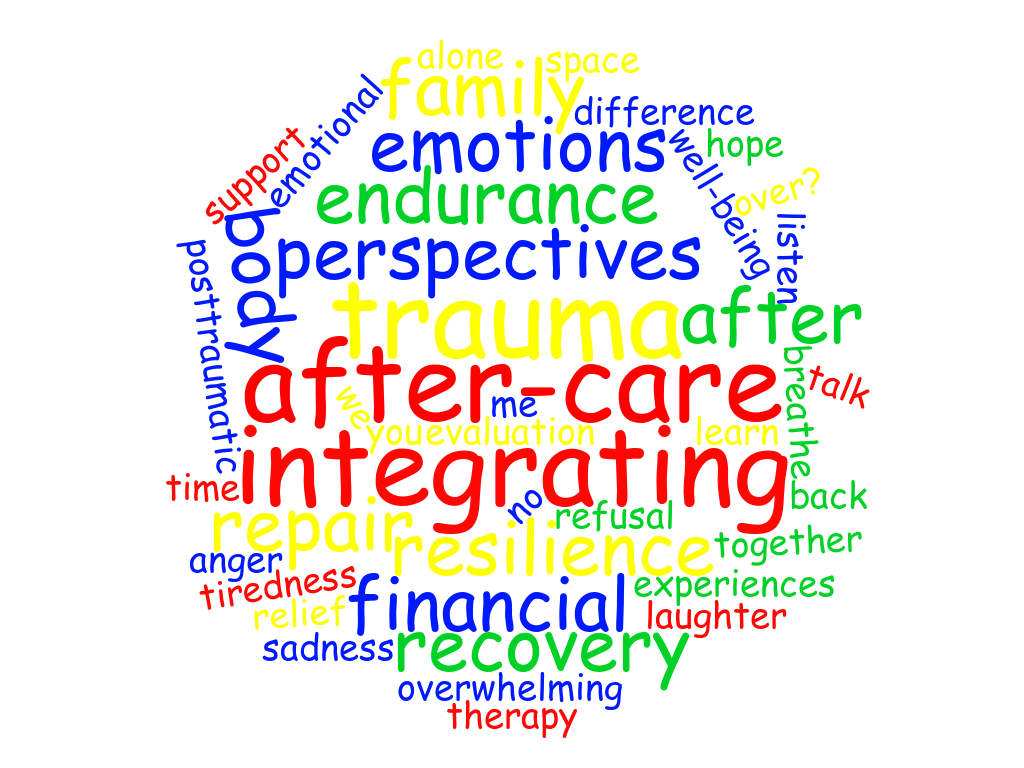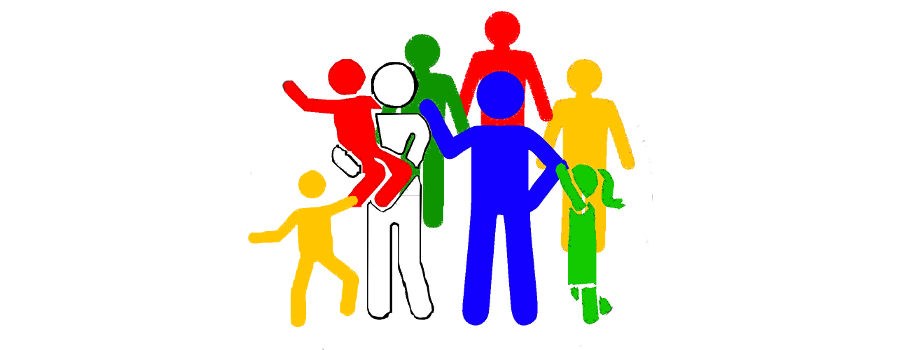
Family
This chapter is for families. You can find a collection of ideas, tactics and helpful practices here - to care for your own wellbeing and in order to support your detained family member.
What happens with your life if someone close to you is arrested and put into prison? How can you take care for yourself and for others in such a situation? How have others coped with this kind of crisis?
These notes give you an impression of how others have dealt with the distress and trauma of imprisonement and state repression. All the authors have gone through similar and yet very different experiences. They offer their learnings and findings to those who face state repression now. Feel free to pick what seems helpful and to let go what does not speak to you.
SELF-CARE
Explore and learn techniques of self-care.
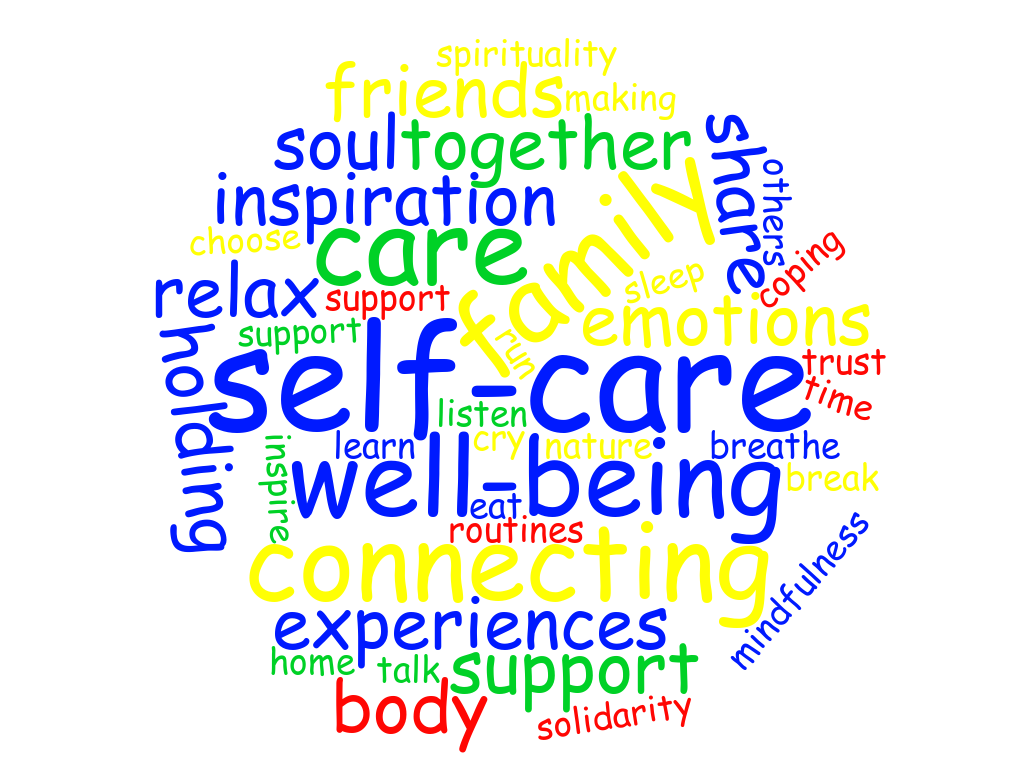
New Routines of Self-Care
Finding new ways of caring for yourself in the everyday helps to keep going.
Spiritual Support
Where do you usually find spiritual support?
Taking Time Off
How about a break from (crisis) work? Some hours or days of not being available for further requests?
Connecting With Others
Who can hold space for you? Who are those you feel comfortable with in this situation?
Making Space For Emotions
How can you make space for your emotions?
Physical Well-Being
Taking care of your body.
CHALLENGES
Crisis brings a lot of hardship and challenges. They need acknowledgement.
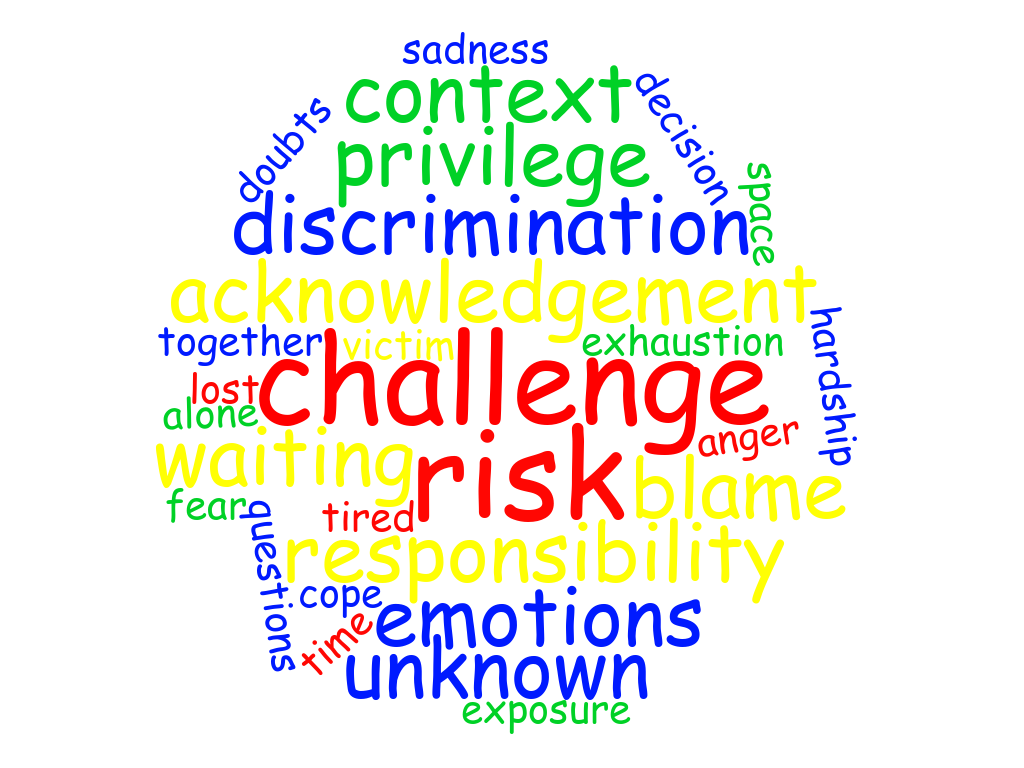
The Unknown
Facing the challenge of not knowing what will happen next. How long it will last.
Blaming the Victim
Of no help: someone suggesting that the imprisoned person took the wrong decisions.
Being Exposed
The specific circumstances of your family relationship
CARING AND WEAVING
State repression aims at the destruction of social ties. By caring we weave them anew.
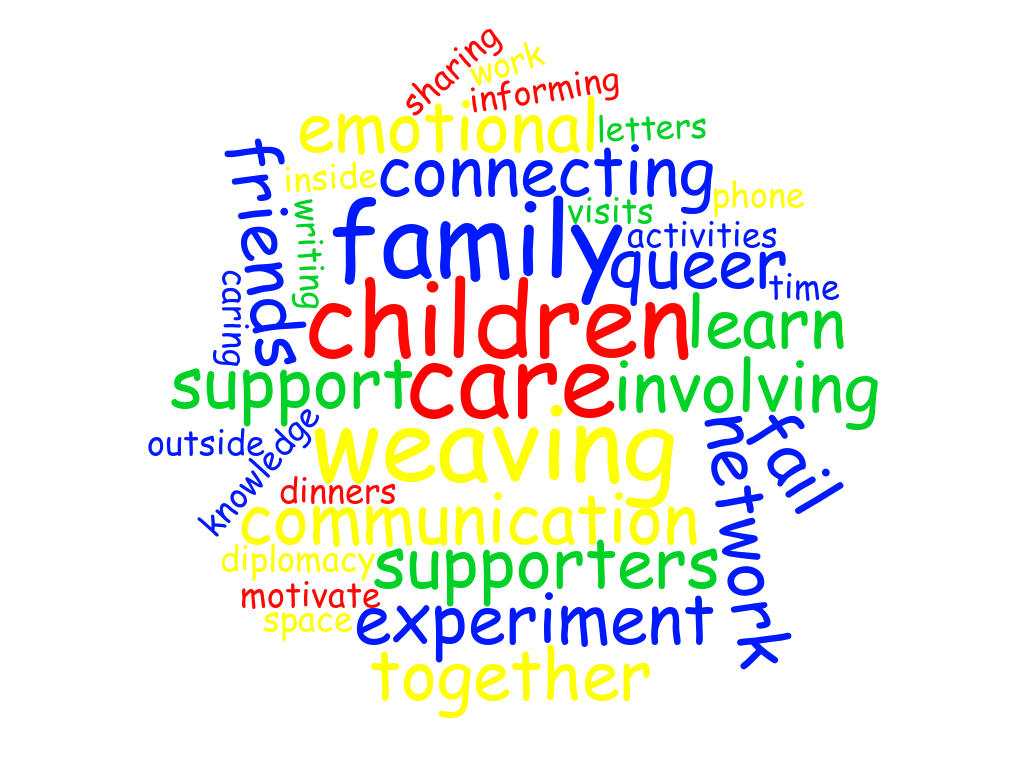
Passing Information About Care
What might the prisoner be worried about? What does he*she need to know?
Sitting Together
How do you connect with a loved one if you can't do it face-to-face, through phone or letters?
Curating Information
Information transfer into prison might be limited. You might be obliged to select and curate.
Caring For Children
Ideas on how to hold a safe space for your children while one of their parents or close persons is in prison.
Updating Supporters and Friends
Regular newsletters might be a way of caring for those who care for the one in prison and for you as family.
Contact With Others
Sharing the challenge of caring for a prisoner's wellbeing.
Family Dinners
Weaving the fabric of the family over a regular dinner.
Organizing Support For Others
Sharing the solidarity and support, weaving the ties among family and friends.
Informing And Involving
Involving the person in prison in decisions might help him or her.
Phone Calls Into Prison
Limited time, but a lot to say, and loads of emotions too.
STRATEGIZING
Which activities are helpful? What might do harm?
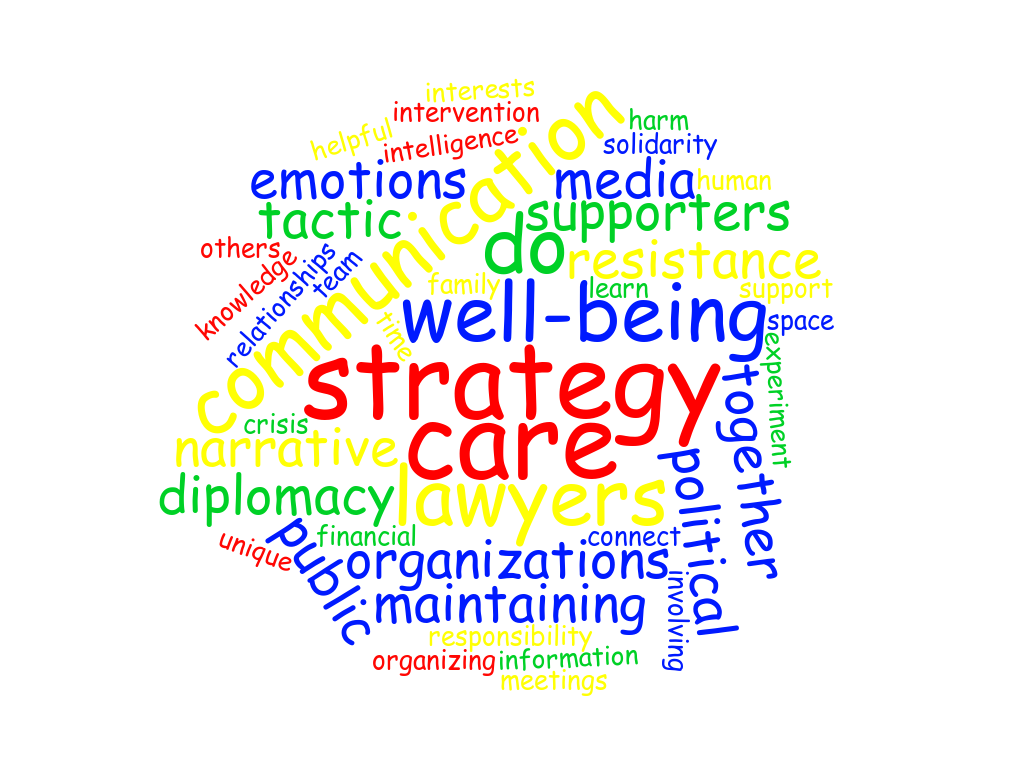
Creating A Narrative
How do you as family want the story be told? Choosing what to tell media and how.
All Is Communication
Are there any hidden messages in our communication that might do harm to those in prison?
Visiting in Prison?
Risk assessment and individual decisions.
Defining Objectives
Caring for others and for oneself can be part of the objectives for family.
Your Unique Point of Intervention
What difference can you make as family? What is you special position?
The Role of the Reminder
Maintaining relationships is not always easy. Having someone who kindly reminds of this necessity might be helpful.
MANAGING THE EVERYDAY
What helps you to handle the normal things of daily life?
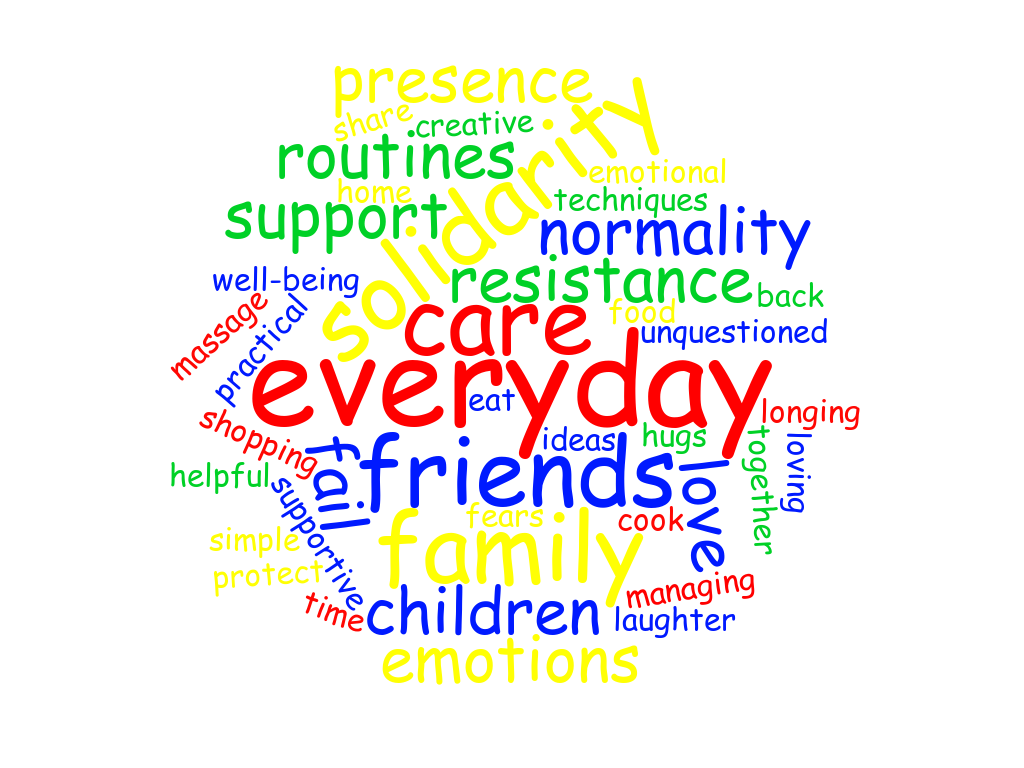
Financial Support
How can you replace the missing income? How did others cover lawyers' fees?
Doubled Life
Checking on obligations and commitements which your detained family member is prevented from fulfilling.
Delegation Principle
Who can take which task to support everyday needs of the family and the detainee?
AFTERCARE
What happens after the release? What was helpful during that time?
